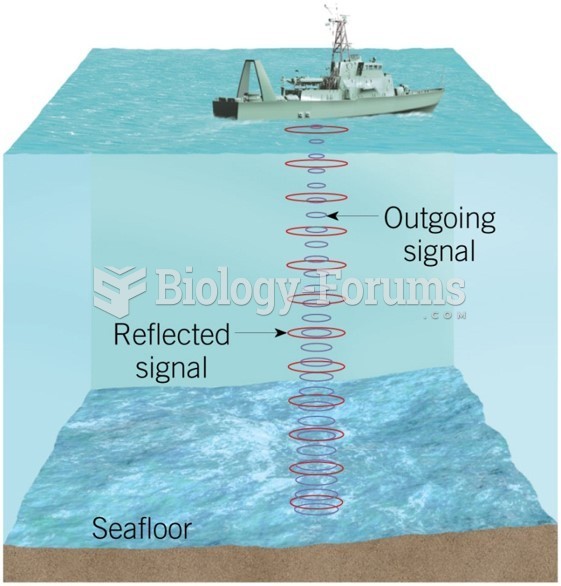|
|
|
To prove that stomach ulcers were caused by bacteria and not by stress, a researcher consumed an entire laboratory beaker full of bacterial culture. After this, he did indeed develop stomach ulcers, and won the Nobel Prize for his discovery.
Of the estimated 2 million heroin users in the United States, 600,000–800,000 are considered hardcore addicts. Heroin addiction is considered to be one of the hardest addictions to recover from.
In 2006, a generic antinausea drug named ondansetron was approved. It is used to stop nausea and vomiting associated with surgery, chemotherapy, and radiation therapy.
Egg cells are about the size of a grain of sand. They are formed inside of a female's ovaries before she is even born.
On average, someone in the United States has a stroke about every 40 seconds. This is about 795,000 people per year.
 (a) Age of maturity of Atlantic cod decreased during the fishery collapse. (b) Evidence of maturatio
(a) Age of maturity of Atlantic cod decreased during the fishery collapse. (b) Evidence of maturatio
 Measures of ocean chlorophyll-a concentrations from part of Atlantic Canada in (a) January 2006, and
Measures of ocean chlorophyll-a concentrations from part of Atlantic Canada in (a) January 2006, and





